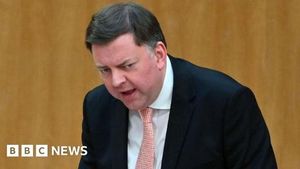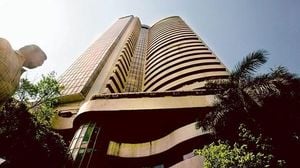Lebanon is grappling with continued economic instability, marked by soaring inflation and widespread protests against the government. The nation, once famed for its vibrant economy and cultural heritage, now finds its citizens struggling for basic necessities as the economic crisis deepens.
The situation has become unbearable; we are choosing between food and medicine, said one anonymous Lebanese citizen. This sentiment has echoed through the streets of Beirut and beyond, where many have taken to protesting the government's mismanagement and corruption.
Since the onset of the economic crisis, protests have become frequent, with citizens demanding accountability from their leaders. "We demand accountability from our leaders," declared one activist, captured by various news outlets. Demonstrators have gathered not just to express anger but also to call for tangible action to address the crippling inflation and poverty wreaking havoc on daily lives.
Currently, the inflation rate hovers at staggering levels, exacerbated by the political dysfunction and lack of effective governance. Many Lebanese families struggle to afford basic groceries, and the prices of staple foods have risen dramatically. Reports indicate some citizens are resorting to reducing their meals or seeking aid from charitable organizations to survive.
The Lebanese government faces increasing pressure to enact reforms and secure international assistance. Yet, governmental inertia has led many to fear there is little hope for rapid recovery. International organizations have displayed concern but remain hesitant to invest heavily without significant assurance of reform.
Protests have remained largely peaceful, with demonstrators employing strategies of civil disobedience, urging the government to listen to their pains. The government has faced numerous challenges, yet many believe true accountability remains elusive.
Internationally, there have been discussions about how to proceed with aid. Conditions attached to financial support are often debated, with many Lebanese citizens showcasing skepticism about external assistance changing the local political dynamics positively. Without tangible signs of reform, the willingness of international communities may dwindle.
Even as the crisis continues and the future appears bleak, resilience defines the spirit of many Lebanese people. Activists and ordinary citizens alike advocate for change, holding weekly meetings to strategize on plans of action against government neglect.
The outlook for Lebanon's economy, governed by persistent waves of crisis, demands urgent attention. Activists assert the need for systemic change, calling for transparent governance and economic revitalization. Without such shifts, the struggles of the Lebanese people will persist, leaving the future uncertain.
Until leadership understands the urgency of the situation, and citizens are empowered, Lebanon's struggles may unfortunately continue. The heart of this crisis lies not solely within the economy, but within the lack of trust and accountability stemming from political leadership, which, if not addressed, may lead to greater unrest and turmoil.
Lebanon stands at a precipice, teetering between despair and hope. Citizens are weary of empty promises and demand decisive action. It is time for the government to take meaningful steps to stabilize the economy, restore faith among its people, and pave the way for recovery.



